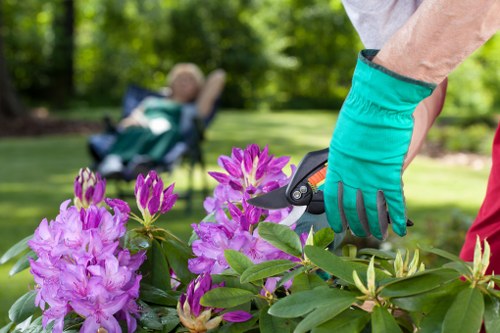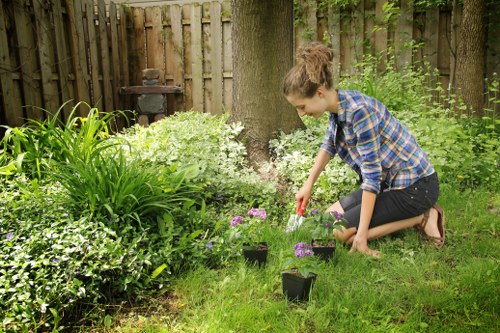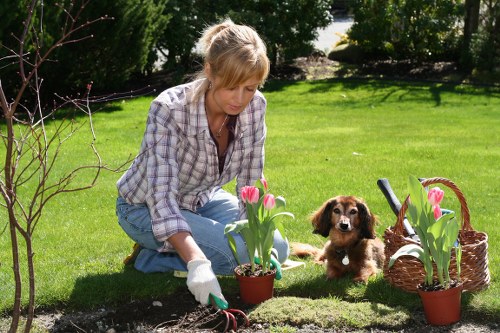Transforming Urban Spaces: Landscape Gardening in Canary Wharf

The Rise of Landscape Gardening in Canary Wharf
Canary Wharf, renowned for its towering skyscrapers and bustling financial district, has undergone a significant transformation over the past decade. **Landscape gardening** has emerged as a pivotal element in redefining the area's aesthetic and environmental appeal.
The integration of green spaces within this urban jungle not only enhances the visual appeal but also contributes to the well-being of its inhabitants. From meticulously designed gardens to innovative green rooftops, landscape gardening in Canary Wharf is setting new standards for urban living.
As businesses and residents alike seek a harmonious balance between work and nature, the demand for expertly crafted gardens has surged, making landscape gardening a cornerstone of Canary Wharf's urban development.

Benefits of Landscape Gardening
Environmental Advantages
Landscape gardening plays a crucial role in mitigating the environmental impact of urbanization. **Green spaces** help in reducing air pollution, lowering urban heat island effects, and promoting biodiversity.
- Air Quality Improvement: Plants absorb carbon dioxide and release oxygen, purifying the air.
- Temperature Regulation: Shade-providing plants and water features help in cooling the surrounding areas.
- Habitat Creation: Gardens support various species of flora and fauna, enhancing local biodiversity.
Moreover, well-planned gardens can aid in water management by facilitating rainwater absorption and reducing runoff.

Design Elements in Canary Wharf
Innovative Plant Selection
Selecting the right plants is fundamental to successful landscape gardening. In Canary Wharf, the focus is on **native and drought-resistant species** that thrive in the local climate while requiring minimal maintenance.
- Ornamental Grasses: Provide texture and movement to garden spaces.
- Perennials: Offer year-round color and resilience.
- Succulents: Perfect for creating modern, low-maintenance landscapes.
By choosing appropriate plant varieties, gardeners ensure sustainability and aesthetic longevity in their projects.

Innovative Techniques
Sustainable Practices
Landscape gardening in Canary Wharf emphasizes sustainability through practices like **permaculture**, **rainwater harvesting**, and the use of **recycled materials**.
Implementing these techniques not only reduces the environmental footprint but also creates self-sustaining garden ecosystems that require less resource input over time.
- Permaculture: Designing gardens that mimic natural ecosystems.
- Rainwater Harvesting: Collecting and utilizing rainwater for irrigation.
- Recycled Materials: Using repurposed materials for pathways, seating, and garden structures.

Community and Well-being
Enhancing Quality of Life
Access to green spaces has been linked to improved mental health, increased physical activity, and stronger community ties. **Landscape gardening** in Canary Wharf fosters a sense of community by providing serene environments where individuals can relax, socialize, and engage with nature.
Whether it's a landscaped courtyard for office workers or a public park for families, these gardens serve as valuable communal assets that enhance the overall quality of life in the area.
Engagement Initiatives
Local initiatives encourage community participation in garden projects, promoting environmental stewardship and fostering a collective sense of ownership.
Workshops and Events
Regular workshops and events educate residents and businesses on sustainable gardening practices, further strengthening the community's commitment to green living.
Contact us today to transform your space with expert landscape gardening services in Canary Wharf.
